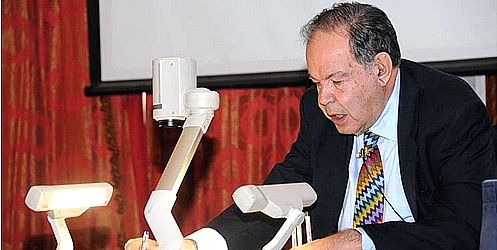Edward Debono
OPERATIONAL FLEXIBILITY AND CORPORATE FLEXIBILITY ARE THE ONLY WAYS KUWAITI COMPANIES CAN COMPETE WITH INDIA AND CHINA, SAYS LATERAL THINKER EDWARD DE BONO
(Kuwait, September 2008): Finding the flexibility in business operations – and injecting your organisation with innovation – are the only ways left for Kuwaiti companies to differentiate themselves from countries like India and China, according to Edward de Bono, the world’s foremost creative thinker.
“It’s no longer good enough for organisations to find better ways of following the same old routines,” said de Bono. “What is needed is a new degree of flexibility, a system that’s open to innovation and suggestion, not merely a repetition of the methods of the past.
“The old efficiencies and standards of excellence still apply. The problem is that our organisations are no longer able to compete with the emerging giants of India and China, where they are able to do these things better, at a lower cost.”
De Bono teached some of his patented lateral thinking techniques in person during an exclusive one-day event in Kuwait, entitled Maximising Creativity and Lateral Thinking to Deliver Strategic Success, on November 2 organized by Global Leaders in cooperation with Vigor-Events. During a similar event recently, participants came up with 21,000 new ideas during the day.
By using lateral thinking, de Bono said we can be innovative, to simplify problems and to find new ways of doing the same old things more effectively.
“It’s all about adding value in the new world of work,” he said. “Every individual in the organisation should be able to come up with new, better ways of doing things and the organisation should have a process in place which recognises these, and acts on them.”
He believes that all countries should include these teaching methods in the national educational curriculum, following the example of China, for instance.
De Bono is regarded as the leading authority in the field of creative thinking, innovation and the direct teaching of thinking as a skill. He is equally renowned for his development of the Six Thinking Hats® technique and the Direct Attention Thinking Tools™ (D.A.T.T.™) framework.



